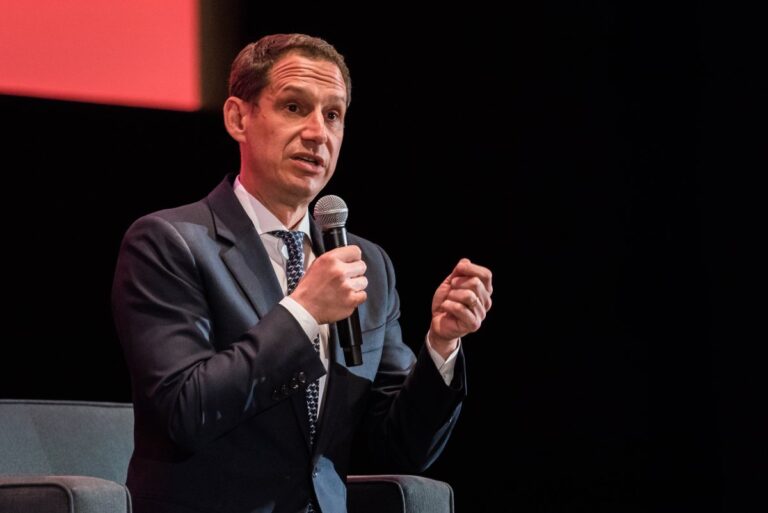San Francisco’s Vision for Revival: Mayor Lurie’s Plan
In an ambitious move to reinvigorate San Francisco, Mayor Daniel Lurie is reaching out to tech executives and entrepreneurs, seeking their collaboration to restore the city to its former glory. At a recent TechCrunch event, Lurie shared his proactive approach: “I’m a mayor that is picking up the phone and calling CEOs. I’m calling entrepreneurs and saying, ‘How can we keep you here?’ or ‘How can we get you back?’”
Tackling City Challenges
Addressing critical issues such as the city’s drug crisis and homelessness is Lurie’s top priority, which has significantly impacted the local business community. Acknowledging the importance of public safety, he has taken steps to reform programs perceived as enabling drug use, including discontinuing the provision of free pipes and foils.
During his initial 100 days in office, Lurie has actively toured the most affected neighborhoods. The response from tech leaders has been encouraging, with Flexport CEO Ryan Peterson publicly thanking the mayor for his efforts to improve the city’s conditions.
Streamlining Business Operations
To foster an environment conducive to business growth, Lurie emphasized the necessity of simplifying regulations. The introduction of Permit SF aims to eliminate bureaucratic obstacles for startups, making it easier to establish businesses in the city.
Additionally, the mayor has proposed changes to zoning regulations that would allow taller buildings in traditionally low-density areas, potentially marking the first major rezoning initiative since 1970. “We want our entrepreneurs starting businesses and then staying here,” Lurie stated, highlighting the importance of reducing barriers for new ventures.
Cultivating San Francisco as an AI Hub
In an effort to position San Francisco as a leader in AI innovation, Lurie is exploring tax incentives for tech companies while encouraging them to invest in the city’s cultural landscape. He has already engaged with key AI firms to establish a more permanent presence in the area, exemplified by his success in persuading Databricks to host its AI conference in San Francisco until 2030.
Lurie has called on Sam Altman, CEO of OpenAI, to prominently showcase the company’s contributions to local arts and culture, an effort he believes is vital for community engagement.
Balancing Tech Growth and Community Needs
Despite the positive developments, there are concerns regarding the tech sector’s impact on existing communities. A recent incident involving Waymo’s attempt to secure a permit for its robotaxi service raised apprehensions among residents about the potential displacement of local businesses and jobs.
While Waymo received a permit for mapping at San Francisco International Airport, it came with restrictions to mitigate conflict with delivery services. Lurie assured that efforts are in place to collaborate with labor unions and ensure that the tech industry’s growth does not overshadow local needs, stating, “Waymo is not going anywhere.”
Looking Ahead
With a focus on modernization and innovation, Lurie is committed to enhancing San Francisco’s appeal as a business hub. “When we’re done, everyone’s going to be like, ‘I got to be in San Francisco. Otherwise I’m missing out,’” he expressed. This forward-looking vision aims to restore the city’s identity as a center for technological progress, attracting both startups and established companies alike.



